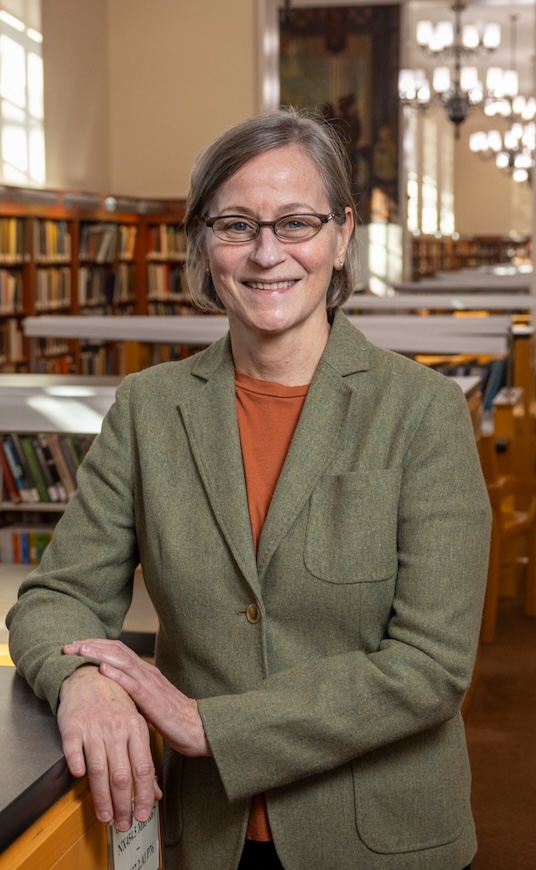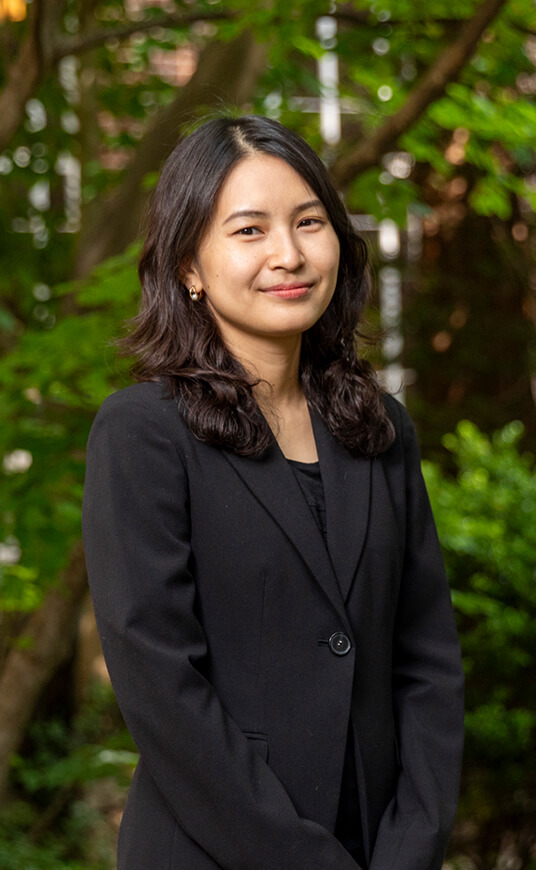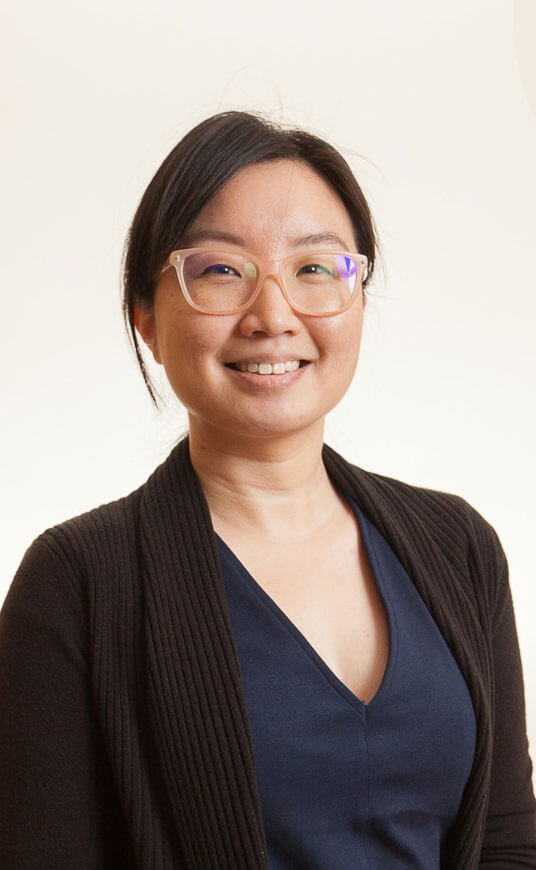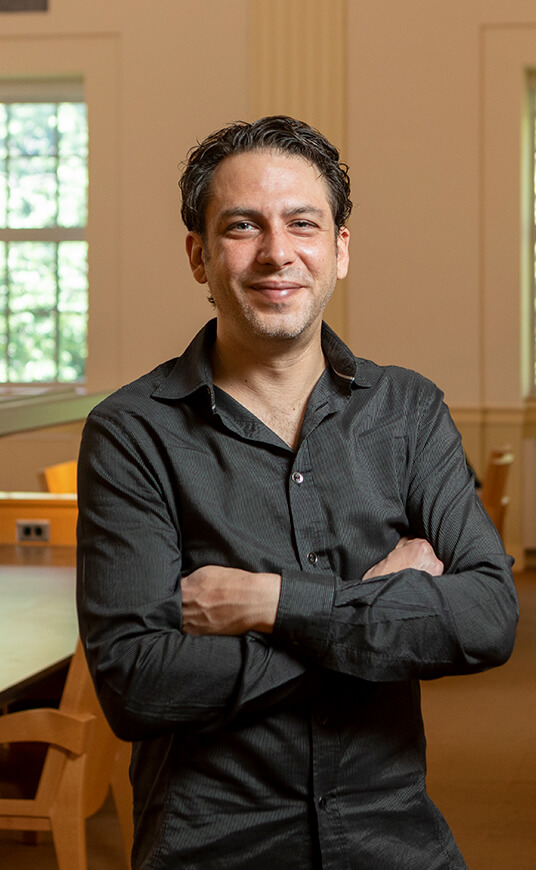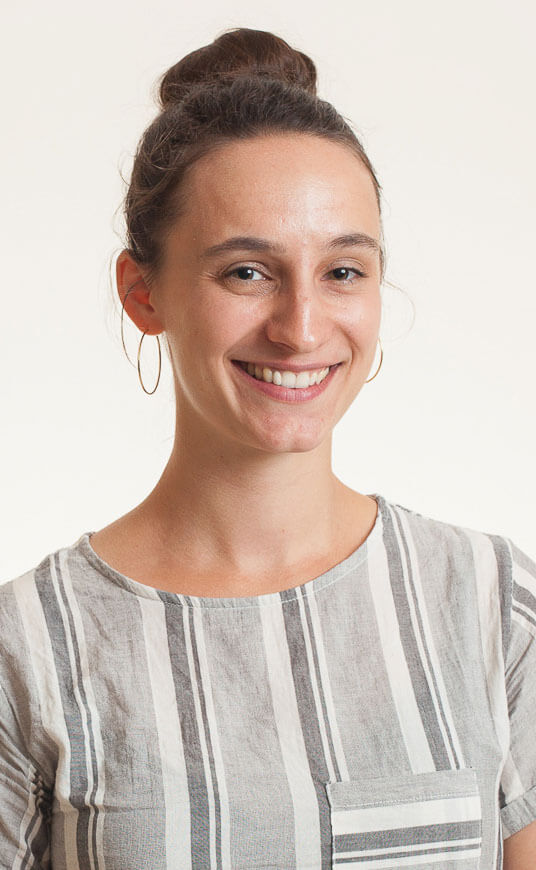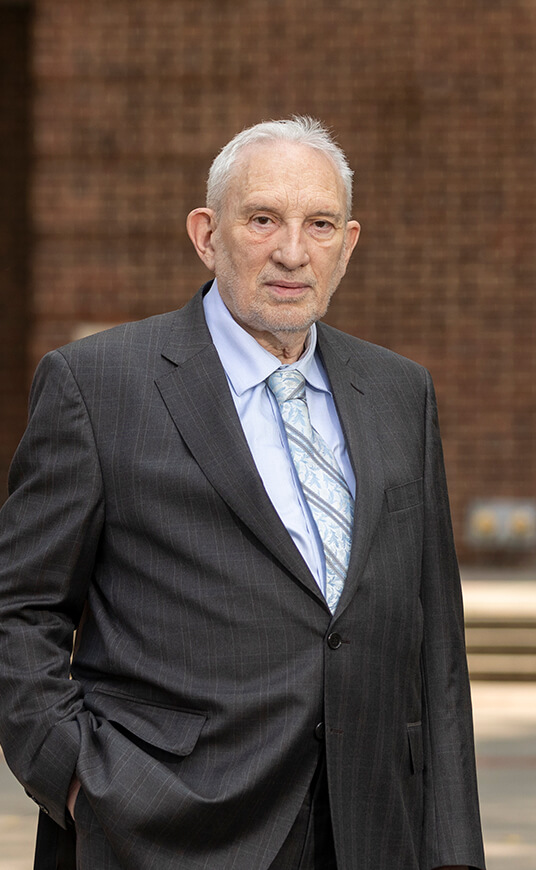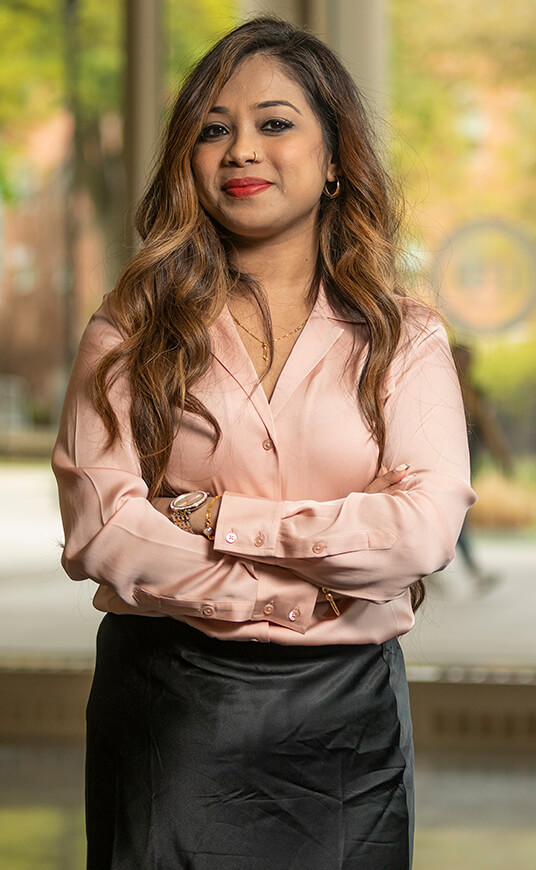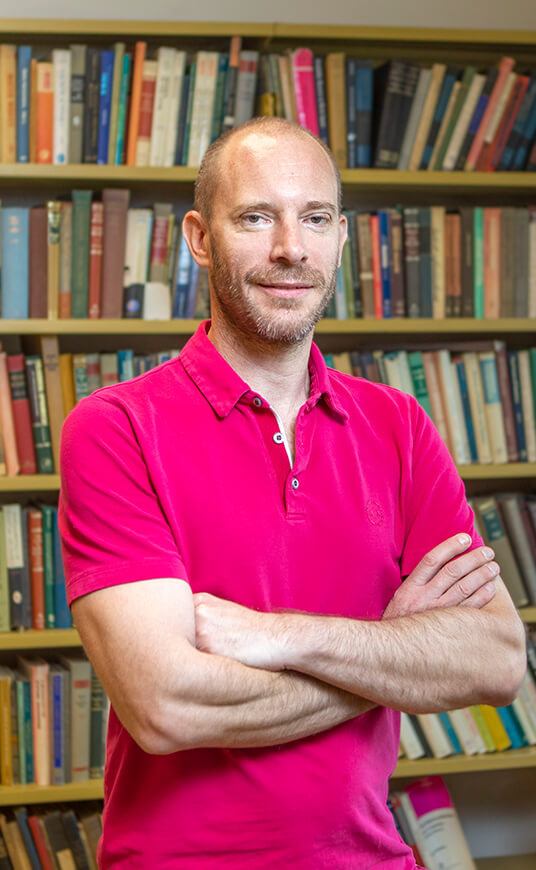Computational Mathematics, B.S.
School of Natural and Behavioral Sciences
Program Overview
As a computational mathematics student, you will combine your interest in computer science and mathematics and choose between two tracks of study—computational or theoretical. In the computational track, you’ll learn to apply mathematical and computational skills to the physical, biological, social, and behavioral sciences. The theoretical option is designed for students interested in the more abstract parts of computer science and for those interested in college-level teaching and research.
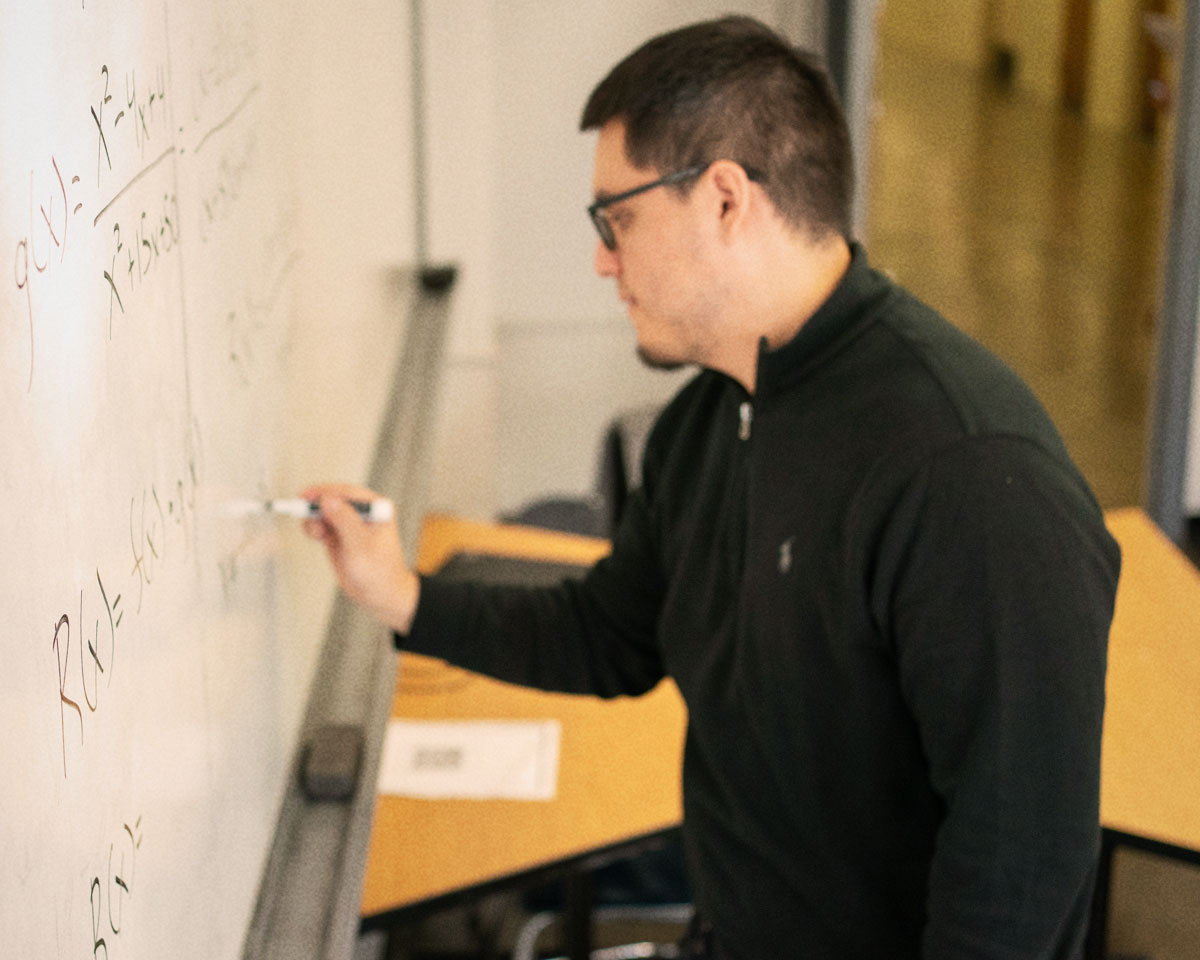
Major Details
The program information listed here reflects the approved curriculum for the 2024–25 academic year per the Brooklyn College Bulletin. Bulletins from past academic years can be found here.
Major Description
An interdepartmental major offered by the Department of Computer and Information Science and the Department of Mathematics.
The computational option of this program enables students to apply mathematical and computational skills to the physical, biological, social, and behavioral sciences. The theoretical option is designed for students interested in the more abstract parts of computer science and for those interested in college teaching and research.
All mathematics courses offered to satisfy the requirements for a major in computational mathematics must be completed with a grade of C- or higher. Unless otherwise specified in the Bulletin, any mathematics courses used to satisfy a prerequisite for an advanced mathematics elective must be completed with a grade of C- or higher. All computer and information science prerequisites to computer and information science courses must be completed with a grade of C or higher.
Major Requirements (61–69 Credits)
Students should select one of the following tracks:
- Computational
- Theoretical
Additional Requirements
Candidates for a B.S. degree with a major in computer science (including computational mathematics and multimedia computing) must complete at least 60 credits in science and mathematics, 24 of which must be completed in advanced courses numbered 2000 and above in the Department of Computer and Information Science. For the B.S. degree in computational mathematics, these 24 credits must be in the Department of Computer and Information Science and/or the Department of Mathematics. These 24 credits must be completed at Brooklyn College with a grade of C or higher in each course. Specific course requirements for B.S. degrees in the department are described above.
The following courses may be applied toward the 60 credits in science and mathematics:
- All courses in the departments of Biology, Chemistry, Computer and Information Science, Earth and Environmental Sciences, Mathematics, Physics, and Psychology.
- Courses marked with a number sign (#) in the Department of Health and Nutrition Sciences.
- Anthropology 2200, 3199, 3230, 3240, 3250, 3260, 3265, 3266, 3425, 3440, 3470, and 4665.
- Biology 1010, Chemistry 1007, Earth and Environmental Sciences 1010, Math 1311, Physics 1005.
- Core Curriculum [1300 through 1399].
- Core Curriculum 3301 through 3399.
- Core Studies [5, 5.1, 5.2, 7.1, 7.2, 8.1. and 8.2].
- Economics 3400, 3410, 4410, 4422.
- Philosophy 3203, 3204, 3231, 3232, 3422, 3423, 3601, 3605, and 3610.
- Kinesiology 3271, 3275, 3281, 3285, 4229, 4251.
- Sociology 2701.
Program Recommendations
Mathematics 4501 is recommended. It is recommended that students choose electives in departments that prepare them to apply computer science to a particular field of interest. Majors in computational mathematics may substitute Mathematics 2001 for Computer and Information Science 2210 as a prerequisite for computer and information science courses.
Student Learning Outcomes
The Mathematics Department’s Program Goals are summarized below:
- Develop in students an understanding of mathematics as a deductive science.
- Develop in students:
- computational skills;
- appreciation for the abstract structures and abstract reasoning at the heart of mathematics;
- the ability to apply mathematics to real-world problems; and
- experience with current mathematical software and technology.
- Promote analytical and critical thinking.
- Prepare students for graduate studies in mathematics, both theoretical and applied.
- Prepare students for the teaching of pre-college mathematics.
- Provide studies in computational mathematics (jointly with CIS).
- Provide for studies in actuarial science and financial mathematics and provide students with necessary marketable credentials to work in the actuarial field or the financial industry.
- Provide the mathematical foundations for students in other disciplines at Brooklyn College.
Program-level Student Learning Goals
The program-level student learning goals apply to the various mathematics programs offered. The department expects a student to meet some or all of these goals upon her or his graduation according to the program of study chosen.
- Develop problem-solving skills.
- Develop inductive and deductive skills in reasoning.
- Understand the significance of central mathematical theorems and their applications
- Appreciate the precision and breadth presented in mathematical theories.
- Develop and foster abstract mathematical thinking.
- Be able to reason and compute with mathematical structures, make a conjecture and prove it, generalize, analyze, and abstract a result.
- Explore the consequences of a general mathematical result in concrete situations.
- Apply mathematical thinking to real-world situations.
- Be able to understand, read, interpret, and eventually generate mathematical proofs and examples.
- Recognize the roles of axiomatic systems and proofs in different branches of mathematics, such as analysis, discrete mathematics, algebra, and geometry.
- Be able to utilize technology, including computer algebra systems, to solve problems numerically, symbolically, and graphically.
- Be able to design and apply algorithms to solve problems numerically, algebraically, and graphically.
- Acquire the skills and confidence to learn new mathematical knowledge as becomes necessary in the course of a lifetime.
- Build mathematical foundations for success in other disciplines.
- Understand the principal concepts of the calculus.
- Build conceptual understanding of sets and functions at various levels.
- Obtain the mathematical skills needed for the job market (actuarial, financial, or other).
- In preparation for a career in teaching, understand the mathematics that will be taught at a profound level and from many points of view.
- Be able to communicate orally and in writing in the language of mathematics.
- Gain a familiarity with the history of mathematics.
- Understand the basic concepts of probability and statistics.
- Prepare students for graduate study in mathematics.
- Prepare for careers outside of teaching.
Degree Maps
To help you pursue your studies in the most efficient manner, and to maximize your efforts to graduate in four years, Brooklyn College has created four-year degree maps for all its majors.
View degree maps for this major and others.
Contact
Jun Hu
Stephen Preston
2312 Ingersoll Hall
E: Stephen.Preston@brooklyn.cuny.edu
P: 718.951.5246
Joseph Thurm
2109 Ingersoll Hall
E: thurm@sci.brooklyn.cuny.edu
P: 718.951.5657
Or contact:
Office of Undergraduate Admissions
222 West Quad Center
2900 Bedford Avenue
Brooklyn, NY 11210
E: adminqry@brooklyn.cuny.edu
To make an appointment with an undergraduate admissions counselor, visit:
Tracks
Computational
Mathematics 1006 and either Mathematics 1011 or 1012. Completion of some or all of these courses may be waived conditional on the outcome of appropriate placement exams.
Mathematics 1201 and 1206. Transfer students may also need to take Mathematics 1211 (see Mathematics Department chair).
All of the following: Mathematics 2001, 2101, 2201, 2206, 3501, 4201, and 4701.
All of the following: Computer and Information Science 1115 or 1170, 3115, 3130, and 3220.
Three courses chosen from among: Computer and Information Science 3240 or Mathematics 3107, Computer and Information Science 3142, 3160, 3310, 3230, 3350, 3330, 3820, 4335.
Students choosing Option I are also encouraged to minor in distributed and Parallel Computing.
Theoretical
Mathematics 1006 and either Mathematics 1011 or 1012. Completion of some or all of these courses may be waived conditional on the outcome of appropriate placement exams.
Mathematics 1201 and 1206. Transfer students may also need to take Mathematics 1211 (see Mathematics Department chair).
All of the following: Mathematics 2001, 2101, 2201, 3101, 4101, and 4201.
All of the following: Computer and Information Science 1115 or 1170, 3115, 3130, 3220, 3230, and 4900 or 5001.
Three of the following: Computer and Information Science 3240 or Mathematics 3107, Computer and Information Science 3142, 3160, 3350, 3330, 3820, 4335.
The Support You’ll Find
Brooklyn College is an integral part of the cultural and artistic energy of New York City. Our faculty members in the departments of Computer and Information Science and Mathematics offer incomparable expertise and tremendous talent, and each brings a unique perspective to their teaching and mentoring in and out of the classroom.
Internships and Employers
Through job fairs, the internship database, and internship panels, the Magner Career Center gives students in the computational mathematics B.S. program access to career opportunities at a wide variety of employers, including:
- Ansys
- Barclays
- Booz Allen Hamilton
- Lawrence Livermore National Laboratory
- Loon
- MassMutual
- Meta
- NASA
- Raytheon Missiles & Defense
- UnitedHealth Group


